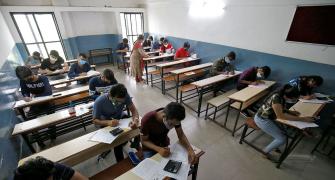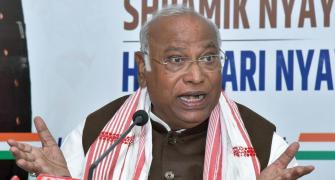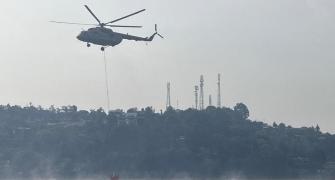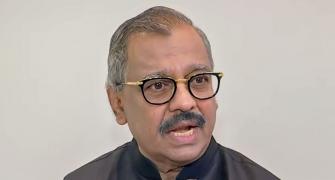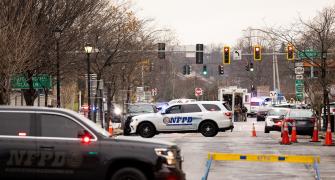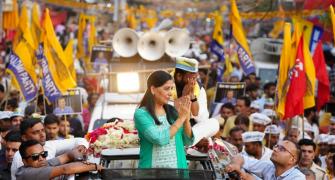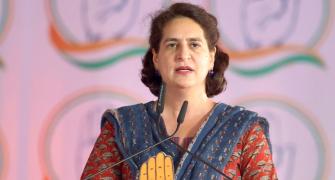Pakistani-Canadian terror suspect Tahawwur Hussain Rana, charged with involvement in the Mumbai attacks, will stick to his 'not guilty plea' unlike his co-accused and childhood friend David Coleman Headley, who confessed to plotting the 26/11 strikes.
Rana, 49, clad in an orange prison jumpsuit, appeared before US Judge Harry Leinenweber in a District court where federal prosecutors set out dates till September to produce and handle classified information and evidence in the case.
Speaking to reporters after the 20-minute hearing, Rana's attorney Patrick Blegen said his client is not changing his plea like co-accused David Coleman Headley did.
"We are heading for a trial... we are hoping for a trial sooner rather than later," Blegen said.
Rana had on January 25 entered a plea of not guilty to the three counts of charges against him in the superseding indictment returned on January 14 in the US District Court for the Northern District of Illinois.
LeT operative and Rana's childhood friend Headley pleaded guilty on March 18 to all 12 counts against him, including scouting for targets for the 26/11 Mumbai attacks.
Rana's trial process is expected to start only after September, till when federal prosecutors would work on what evidence, gathered against him, can be used at trial.
Blegen said the trial would "obviously not start till after September" but hoped that it would not take 1-2 years for the trial to begin.
He said Headley's guilty plea did not come as a surprise since he had been "cooperating with the investigation".
"We knew and I think everybody in the press already knew as well that he was planning on pleading guilty. He allowed the Department of Justice to indicate that he was cooperating so it is not surprising at all."
"As to how it will affect the (Rana) case, I have to see the evidence first," he said adding that he feels he still has a strong case."
On whether Indian authorities, who have been pressing to interrogate Headley, would be given access to Rana, Blegen said, "I will wait to hear who exactly wanted to talk to whom and what the conditions are. If they ask, I'll think about it".
Chicago's top federal prosecutor Patrick Fitzgerald, who was present at the hearing, told the court he hopes to declassify evidence gathered in the terror investigation in the next few months.
Fitzgerald said declassifying the material would help the government avoid extensive use of the Classified Information Procedures Act (CIPA) - which is essentially a procedural tool for a court to address the relevance of classified evidence before it may be introduced for trial.
"A substantial amount of discovery is classified material we're seeking to declassify," said Fitzgerald, whose presence during the hearings demonstrates the high importance the government is attaching to the case.
Blegen and prosecutors agreed on a six-month schedule - April 5, June 1, July 1, August 2, September 13 for carrying out provisions of the CIPA, which allows prosecutors to take extraordinary measures to prevent classified information from leaking to the public.
This is done mainly to protect the source of the information and safeguard information that may be important for national security.
Leinenweber set a date of September 13 for a hearing to determine what classified information can be admitted as evidence at trial. A status hearing for motions not related to classified materials was set for May 11.
Blegen added this case "does not work like a usual case because there is a lot of different things you have to go through when there is classified information".
He said he would be able to view the classified documents in a special room that has been chosen in the courthouse for the purpose once he is given his security clearance.
"If there is something in the documents that we think is necessary for part of the defence we can attempt to get it declassified. If the government does not agree to this, then
the court would decide whether the information should be declassified," he said.
Blegen said he would be able to comment on whether the CIPA process could cause problem for the defense "only until I see the classified information".

